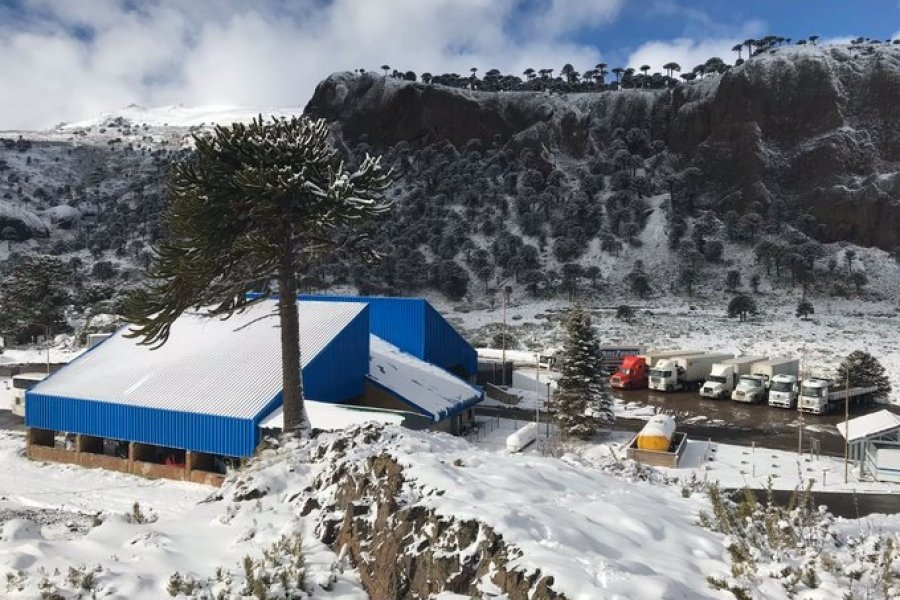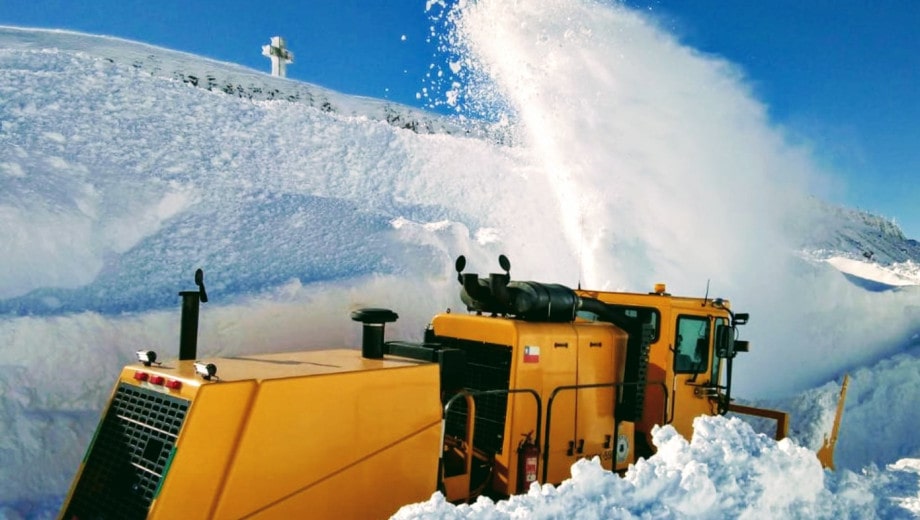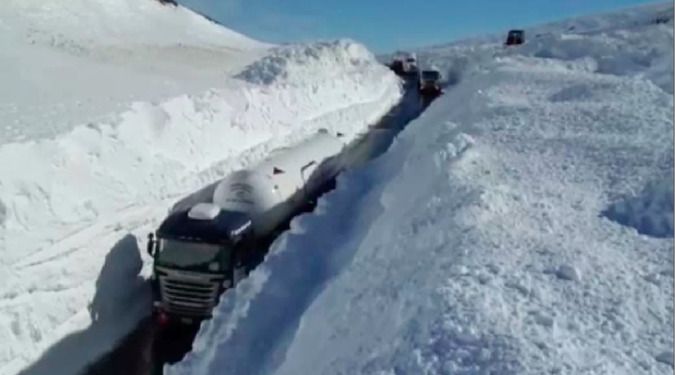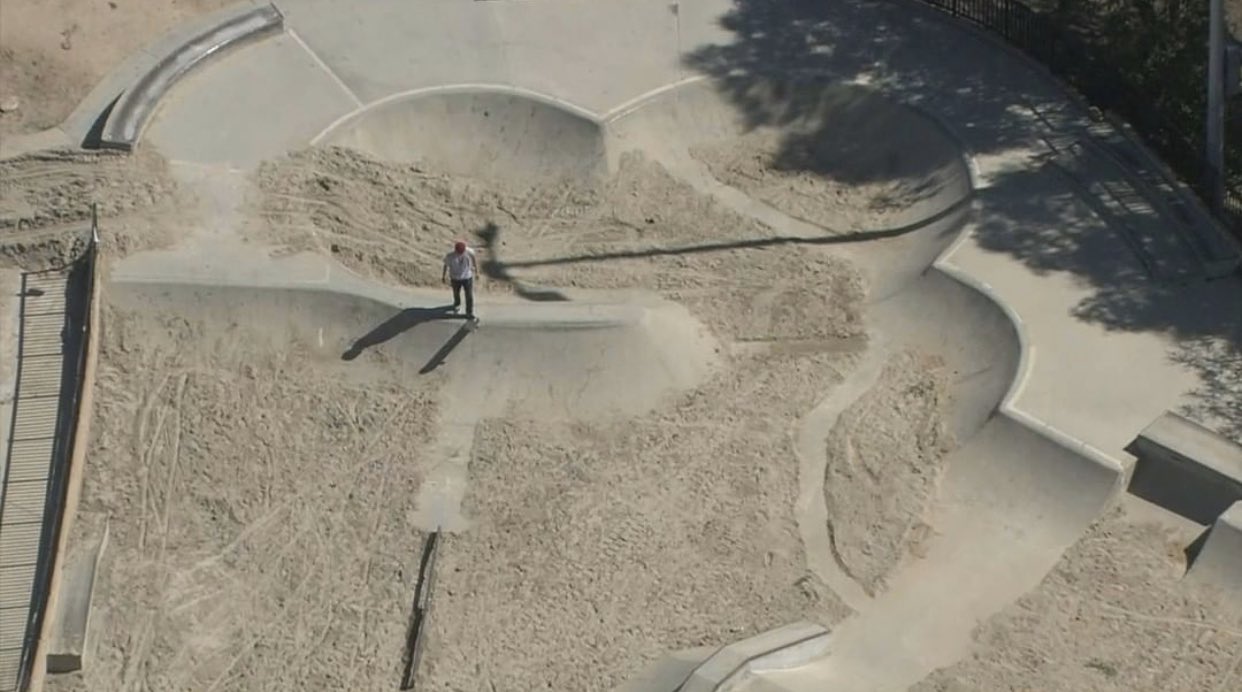The Andes mountains continue to accumulate snow, forcing the border crossing of Pino Hachado to remain closed. The Araucarias Pass that connects Chile and Argentina in the South was cleared on July 15th for the exclusive use of international transport, but it wasn’t enough.
Pino Hachado Pass is also called the Araucarias Pass due to the trees that accompany the landscape of the road. It is one of the principal passes of the Southern Andes and has the highest point of connection at 6,180-feet.
The snowfalls have lasted the whole month of July, leaving almost 500 Chilean and Argentine trucks stranded. Heavy snowfall, white wind in both territories, and lack of heavy machinery make it difficult to keep the border crossing open.

Due to the circumstances, the Ministry of Public Works (MOP) supplied snow blowers, icebreakers, and trucks with salt with the aim of re-establishing traffic between the countries. After hard work done in conjunction with the Winter Road Operations Units of Chile and Argentina, the route was successfully opened for the 15th of July, revealing the accumulated snow of that day.
The success of the mission allowed the passage of around 350 carriers who were waiting on the side of the road. The truckers weren’t ready to see the surprise that the mountain weather brought for them. They encountered walls of almost 20 feet, they couldn’t believe it!

However, with the passing of the days, new snowfalls have been registered in the pass leading back to its closure. Likewise, the forecast indicates that it will continue to snow, making it impossible to reopen the pass for the next few days.
- Related: Record-Breaking 13-Feet Of Fresh Snow Falls On The Andes As Resorts Remain Shut Due To Covid-19
This could be very good news for the Corralco locals in Chile, as the Pino Hachado pass is located a few miles from the ski resort, where they have accumulated around 18 feet of snow already. Even so, we must remember that Corralco has not given any news regarding a possible opening at this moment due to the precautions of COVID-19 promulgated by the government of Chile.





